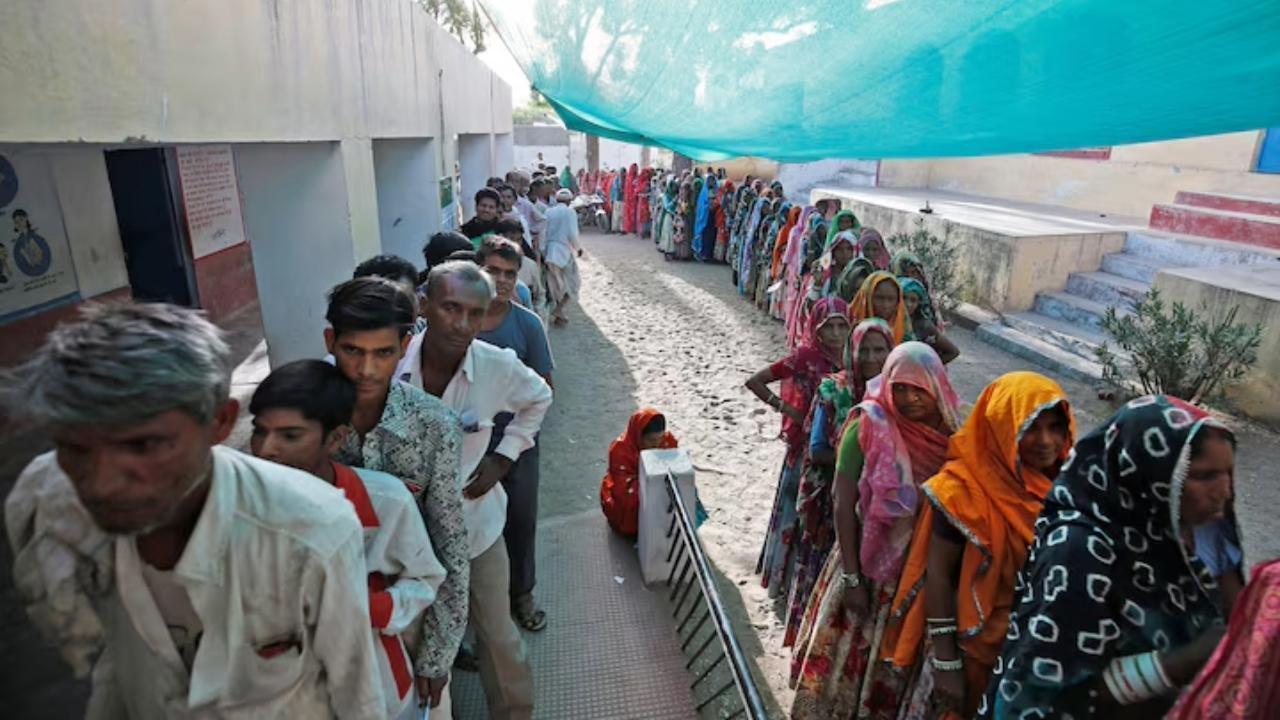You have not yet added any article to your bookmarks!

Join 10k+ people to get notified about new posts, news and tips.
Do not worry we don't spam!

Post by : Anis Farhan
As India prepares for a string of critical state elections in late 2025, the political landscape is undergoing visible recalibration. Regional parties—long seen as local powerhouses with limited national reach—are now emerging as pivotal players capable of disrupting the traditional dominance of both the Bharatiya Janata Party (BJP) and the Indian National Congress (INC). With elections scheduled in key states like Maharashtra, Bihar, Haryana, and Delhi, a flurry of realignments, ideological recalibrations, and coalition negotiations has come to define the country’s pre-election narrative.
The shifting dynamics are not just about vote shares or seat counts—they reflect deeper currents of regional assertion, youth mobilization, and issue-based politics that are steadily reshaping India’s federal democratic structure.
A defining feature of this electoral season is the strategic fluidity among parties. In Maharashtra, the Shiv Sena (UBT) and Nationalist Congress Party (Sharad Pawar faction) are exploring a tactical realignment, despite ideological rifts, to consolidate anti-BJP votes in urban centers and semi-rural pockets. Meanwhile, in Bihar, the Janata Dal (United) is recalibrating its partnership options after public disagreements with the Rashtriya Janata Dal over caste census implementation and economic reservations.
This fluidity signals a shift away from rigid ideological affiliations toward pragmatic coalition-building, where voter arithmetic and ground-level reach outweigh traditional political alignments.
In many cases, parties are focusing on hyper-localized issues: urban water shortages, caste equity, agricultural procurement, and youth unemployment. These bread-and-butter concerns now trump grand narratives around nationalism or secularism—especially in second-tier cities and rural districts.
With nearly 100 million first-time and young voters expected to participate in these elections, parties are scrambling to project younger leadership and offer more digitally accessible campaigns. In Haryana and Delhi, regional parties like the Aam Aadmi Party (AAP) are fielding youth candidates with strong social media footprints and urban education backgrounds. Their manifestos speak less about ideology and more about municipal responsiveness, job creation, and digital governance.
Interestingly, the BJP’s dominance in previous state elections is being met not with anti-incumbency rhetoric alone, but with new voter engagement strategies. Regional parties are experimenting with town hall formats, app-based grievance redressal tools, and livestreamed public accountability forums.
These efforts are largely aimed at cultivating a “direct-connect” electorate, where loyalty is built through continuous communication rather than periodic rallies.
The evolving political theatre has also forced national parties to reconsider their state-level playbooks. The INC is adopting a federalized campaign approach, granting more autonomy to state units while toning down its central command’s interference. In Bihar, Congress has endorsed localized manifestos that foreground regional caste dynamics and agrarian demands.
For the BJP, while its national leadership remains popular in several states, it is increasingly leaning on regional leaders and micro-targeted welfare schemes to sustain momentum. Initiatives like the Pradhan Mantri Awas Yojana and Ayushman Bharat health cards are being showcased not as central achievements, but as localized success stories through regional branding and dialect-based outreach.
One of the most consequential trends emerging from this electoral churn is the resurgence of coalition-era politics, reminiscent of the late 1990s and early 2000s. With no single party projected to dominate all key battleground states, post-election alliances and power-sharing deals could return as the norm rather than the exception.
Already, in states like Maharashtra and Bihar, pre-poll alliances are being negotiated in anticipation of fragmented mandates. The outcomes here may also shape the narrative heading into India’s 2029 general elections, especially if a pattern of state-level anti-incumbency consolidates into national-level momentum.
More than a contest of personalities and platforms, these elections are a test of India’s evolving federal compact. As regional parties expand their ambitions and influence, the role of states as laboratories of policy innovation becomes clearer.
Whether in education reforms in Delhi, rural electrification in Bihar, or agri-infrastructure in Maharashtra, state governments are asserting policy independence in ways that challenge the traditional centralization of power.
This democratization of governance is what makes India’s 2025 state elections more than just a test of electoral math—they are, in many ways, a rehearsal for a more decentralized, demand-driven political model.
This article is intended for informational purposes only and does not constitute political advice or electoral forecasting. Readers should refer to official Election Commission updates and verified political platforms for current developments.










Minimarkets May Supply Red and White Village Cooperatives
Indonesia’s trade minister says partnerships with minimarkets and distributors can strengthen villag

South Africa vs West Indies Clash Heats Up T20 World Cup 2026
Unbeaten South Africa and West Indies meet in a high-stakes Super 8 match at Ahmedabad, with semi-fi

Thai AirAsia Targets Growth Through China & Long-Haul Routes
Thai AirAsia aims 6-9% revenue growth in 2026 expanding domestic flights and new international route

India Ends Silent Observer Role Emerges Key Player in West Asia
From passive energy buyer to strategic partner India’s diplomacy in West Asia now commands trust inf

Indian Students Stuck In Iran Amid US-Iran Tensions And Exam Worries
Rising US-Iran tensions leave Indian students stranded, fearing missed exams could delay graduation

India Says J&K Budget Exceeds Pakistan’s IMF Bailout
India slammed Pakistan at UNHRC, stating J&K’s development budget exceeds Pakistan’s IMF bailout and